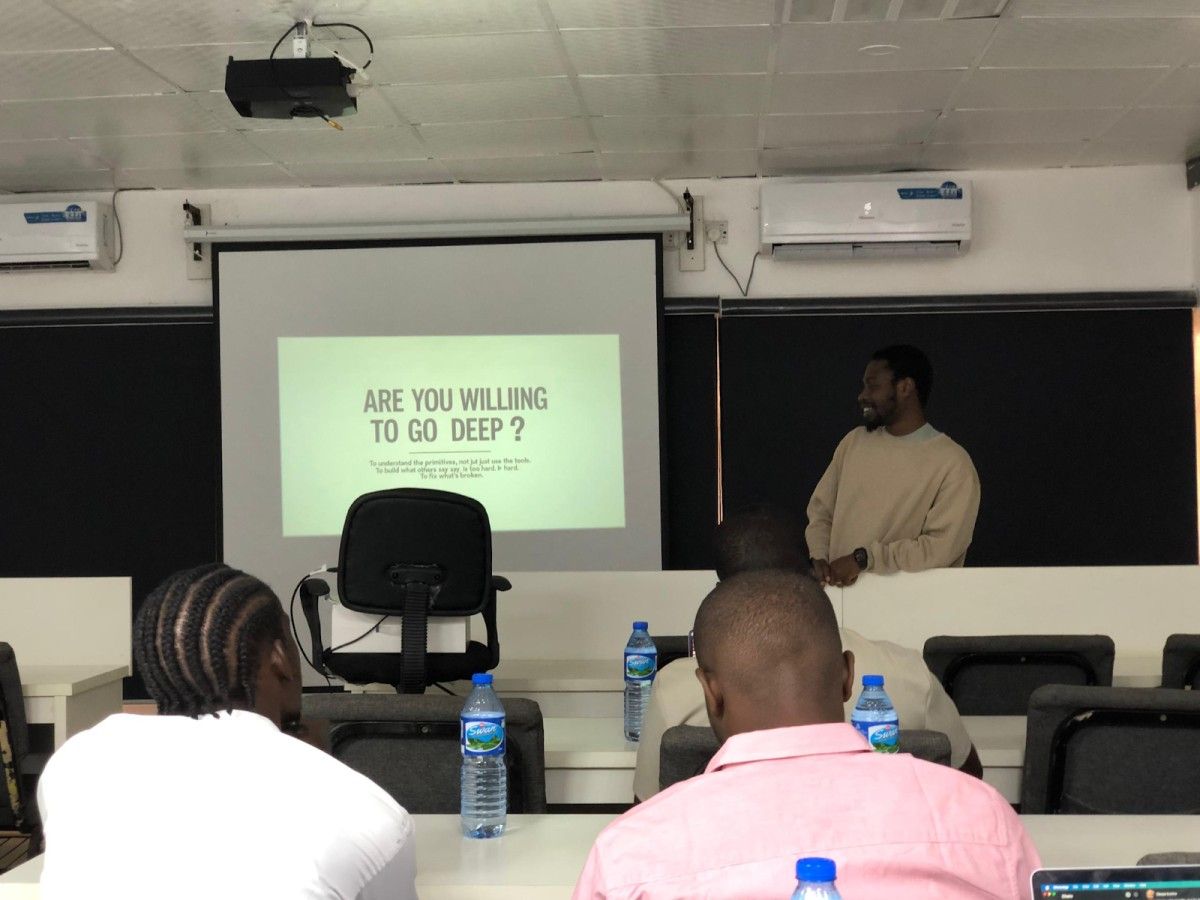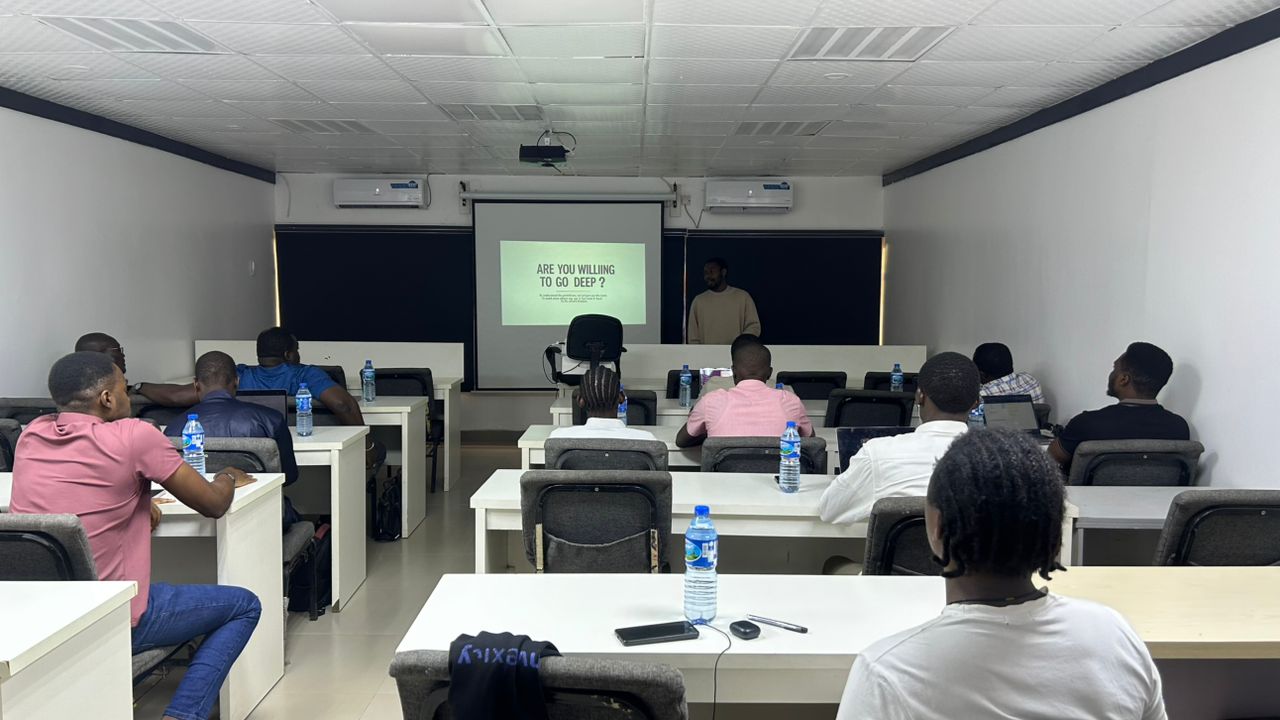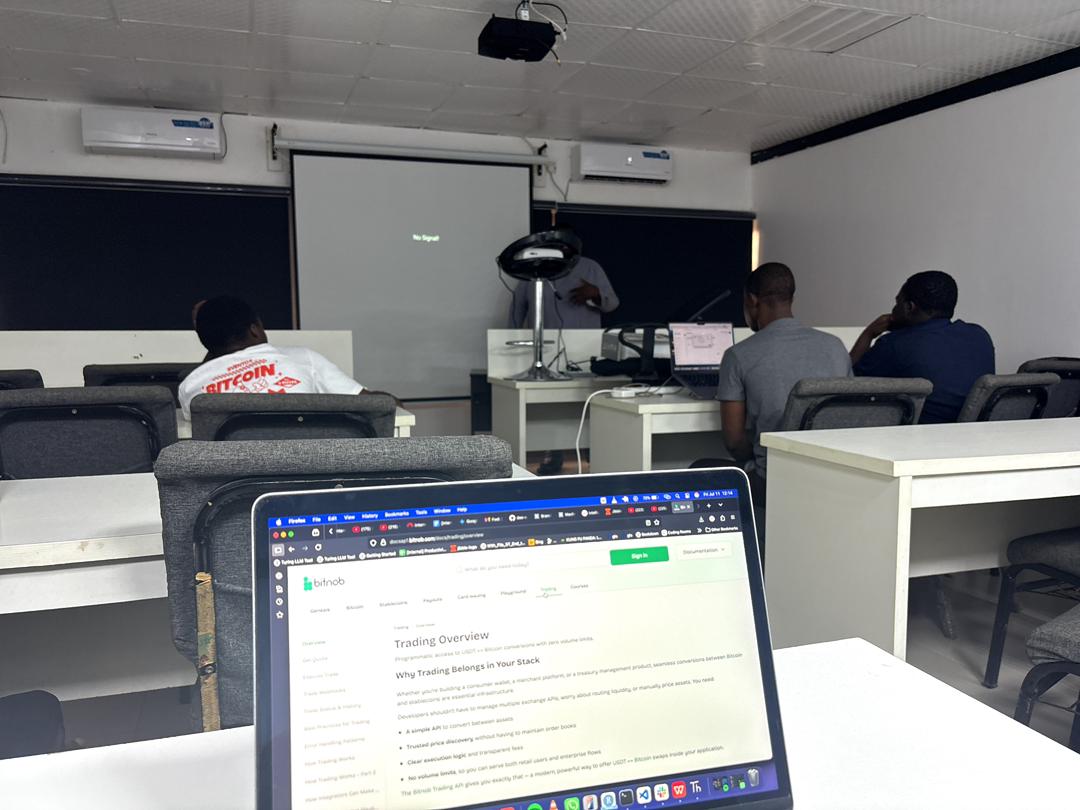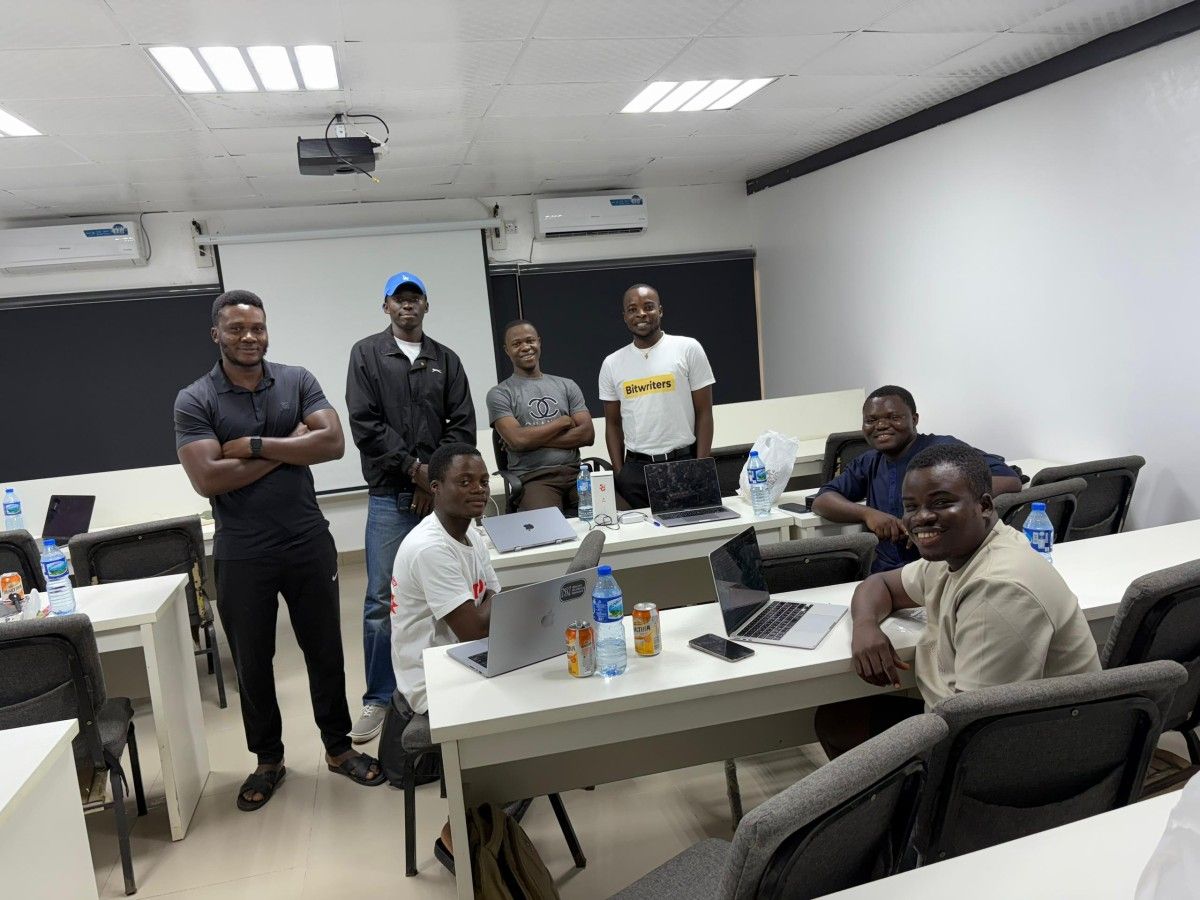Last Thursday, I stepped into a room buzzing with anticipation, my notebook in hand and my curiosity on overdrive.
I wasn’t there to cover the event—I was there to learn, to connect, and to dive into what Professor Berlin has to share.
Hosted by Bitnob and facilitated by their co-founder Bernard ‘Berlin’ Parah, this two-day event promised to spark ideas and challenge how we think about tech in Africa.
Spoiler: it delivered.
Day 1: Breaking the Consumer Mindset
The event kicked off with a vibe that felt more like a hackathon than a lecture hall.

Bernard Parah, with his easy charisma, set the tone by inviting everyone to introduce themselves.
One by one, developers, students, and tech enthusiasts shared their stories—some shy, some bold, all passionate.
I fumbled through my own intro, laughing as I admitted who I was. The room felt alive, a melting pot of coders, dreamers, and achievers.
Then Bernard dropped a question that hit hard:
“Why hasn’t an African created a globally recognised programming language?”
He laid out a hard truth: Nigeria, and Africa at large, often consumes tech from the West, rarely owning it. Despite our growing army of coders, we’re users, not creators, of innovation.
The room fell quiet, then erupted in discussion.
Attendees pointed to poverty, scarce research funding, and cultural pressures as barriers. One developer summed it up: “When you’re broke, building from scratch feels like chasing a dream you can’t afford.”
The main event of the day was a deep dive into Hash Functions, the cryptographic backbone of blockchain. Bernard flipped open a slide deck he’d originally prepped for 100-level university students, making it perfect for breaking down complex ideas.
We played the Hash Function game, a brilliant way to grasp one-way functions.
Picture this: one person picks a word, tells others, then challenges someone to guess it. If the picker lies about the word, the group verifies the truth. It’s a simple analogy for how blockchains ensure trust without a middleman.

We dug into the nuts and bolts of hashing functions like SHA-256 (Bitcoin’s go-to) and SHA-512, learning how they secure passwords (with salting for extra strength).
Bernard explained how older hashes like SHA-1 and SHA-128 got cracked, and while SHA-256 could theoretically fall to quantum computers, the proof-of-work system makes it insanely expensive to break. “It’s a game of computational cost,” he said, and we all nodded like we’d just cracked a secret code.
The day ended with a thunderous clap for “Professor Berlin,”.
Day 2: Building the Future with Bitnob’s API
Friday brought a new energy and a new face:

Kayandra, a larger-than-life developer whose presence screamed, “I’ve spent more time coding than walking.”
He was there to show us how to build with the Bitnob API, and let me tell you, this guy is a legend. His session was a masterclass in turning ideas into reality, blending AI and blockchain to create fintech apps that feel like magic.
Kayandra walked us through the Bitnob API, a toolkit for building Bitcoin and crypto payment systems, including wallets powered by stablecoins.
The real jaw-dropper?
Integrating the Bitnob API with conversational AI platforms such as ChatGPT, Gemini, and others.
He demoed with Goose AI using Gemini as a model to send lightning and stablecoin payments powered by the Bitnob API.
Picture this:
You type “send 1000 SAT to jeremy@walletofsatoshi.com” on WhatsApp, hit send, and—bam—Bitcoin moves instantly. It’s conversational, mobile-first, and perfect for Africa’s WhatsApp-obsessed market. For developers, this was like being handed a blueprint for the next big fintech app.
It was fantastic to see live.
The session wasn’t just theory. Samuel shared code snippets and walked us through real-world use cases, like embedding lightning payments into messaging apps. For a room full of developers, this was like handing us the keys to a Ferrari. I could see the gears turning in everyone’s heads—ideas for the next killer app were being born right there.
Beyond the Code: A Community Takes Root
The event wasn’t just about tech—it was about people. Between sessions, we networked like crazy, swapping WhatsApp IDs and brainstorming projects. We even created the Bitnob Dev group, a WhatsApp community where we now share updates, code snippets, and memes (because what’s a dev group without memes?). The connections felt real, like we were building something bigger than ourselves.

What made this event special was its promise of continuity. This wasn’t a one-and-done deal—Bitnob plans to keep these gatherings going, fostering a community of African developers ready to shift from users to creators.
Are you a developer?
The event was a call to action. It exposed the harsh realities holding us back—poverty, funding gaps, and a consumer mindset.
But then, we were handed the tools to change the narrative.
Hash Functions taught us the cryptographic heart of blockchain, while the Bitnob API with ChatGPT integration opened doors to building fintech apps that could redefine money in Africa.
A new chat app called Xara’s is trending on social media right now simply because it lets you send naira easily, but we all know, payments in Africa would be solved by Bitcoin and stablecoins not naira.
How about you use Bitnob API to build a new way to pay someone across Africa? Send lightning payments, invest in Bitcoin, or even carve a new market for yourself by building a fun way to buy and sell Bitcoin.
So, coders, here’s the challenge: dive into the Bitnob API and build something that makes you a creator, not just a user, of tech.
The Bitnob Dev group is alive and buzzing—join us, share your projects, and let’s make the next event even bigger.
Are you ready to code the future?
